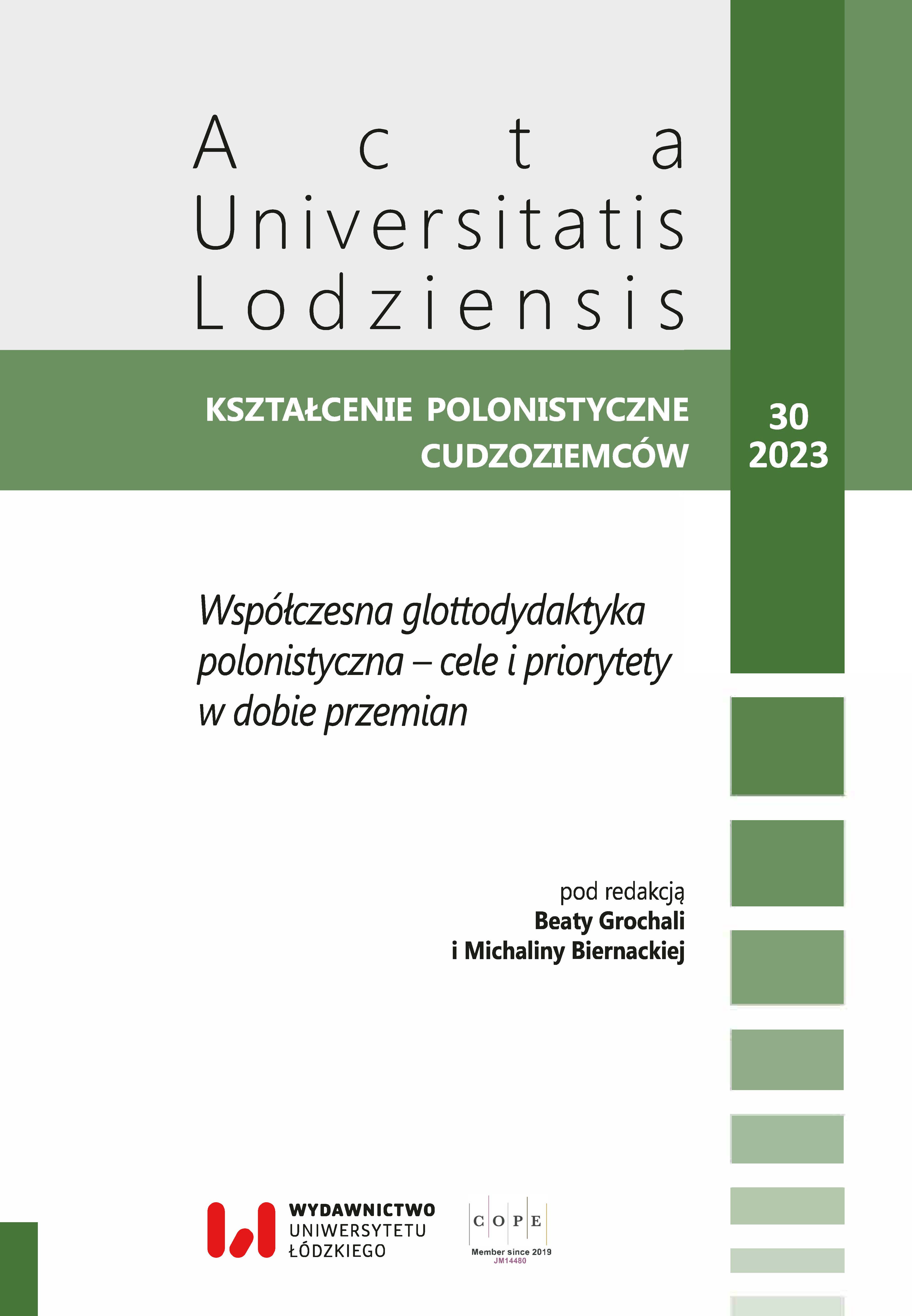Jak logopeda może wspomagać rozwój kompetencji językowych i komunikacyjnych dziecka uczącego się jpjo/jpj2 (w odniesieniu do dzieci z Ukrainy)
How a speech and language therapist can support the development of language and communicative competence of a Ukrainian child learning Polish as a foreign or second language
Author(s): Renata Marciniak-FiradzaSubject(s): Foreign languages learning, Educational Psychology, Pedagogy
Published by: Wydawnictwo Uniwersytetu Łódzkiego
Keywords: speech therapy; language competence; communication competence; Polish language as a foreign language
Summary/Abstract: Ukrainian citizens are by far the most numerous group of foreigners in Poland, accounting for just over 80% of all foreigners settling in the country. One of the consequences of migration flows to Poland, mainly related to the current situation in Ukraine, is the increasing number of Ukrainian children in the public school system. Migratory movements determining linguistic and cultural contacts, which result in bilingualism or multilingualism, present new tasks for speech and other therapists. The phenomenon of bilingualism and multilingualism has definitely become of great interest in speech therapy. The aim of this article is to systematize, on the basis of the literature on the subject and case studies, the competence of a speech therapist in the field of supporting Ukrainian children in the classroom. It is also important to discuss the logopedic forms of support for these children, and to point out the challenges facing contemporary speech therapy in this area. As part of the support, the speech therapist primarily carries out a diagnostic process and diagnoses a bilingual child, establishes strategies for developing language and communication skills, develops the child’s language and communication skills, through systemic and communication language skills. In order for the speech therapist’s support in the process of teaching Polish as a foreign language / as a second language to be the most effective, the speech therapist should have access to standardised and reliable diagnostic tools for bilinguals. This will enable him/her to develop procedures, methods, and tools necessary for the speech therapy processes of bilingual/multilingual learners. It is one of the most important tasks facing contemporary speech therapy.
Journal: Acta Universitatis Lodziensis. Kształcenie Polonistyczne Cudzoziemców
- Issue Year: 2023
- Issue No: 30
- Page Range: 319-335
- Page Count: 17
- Language: Polish

